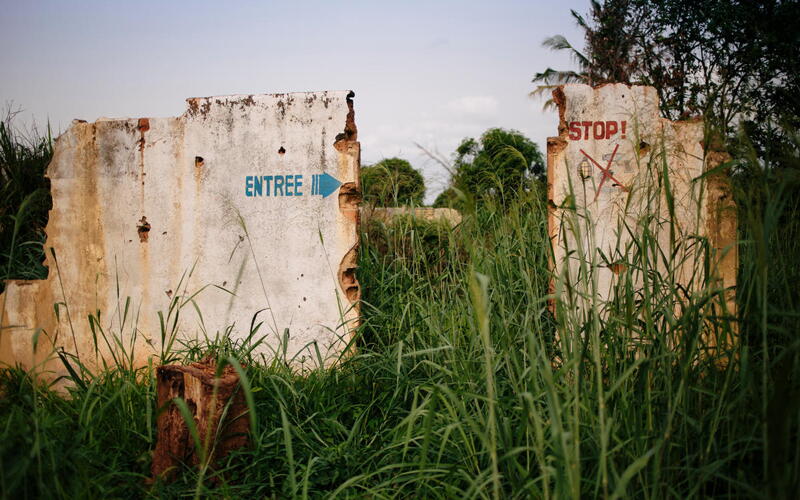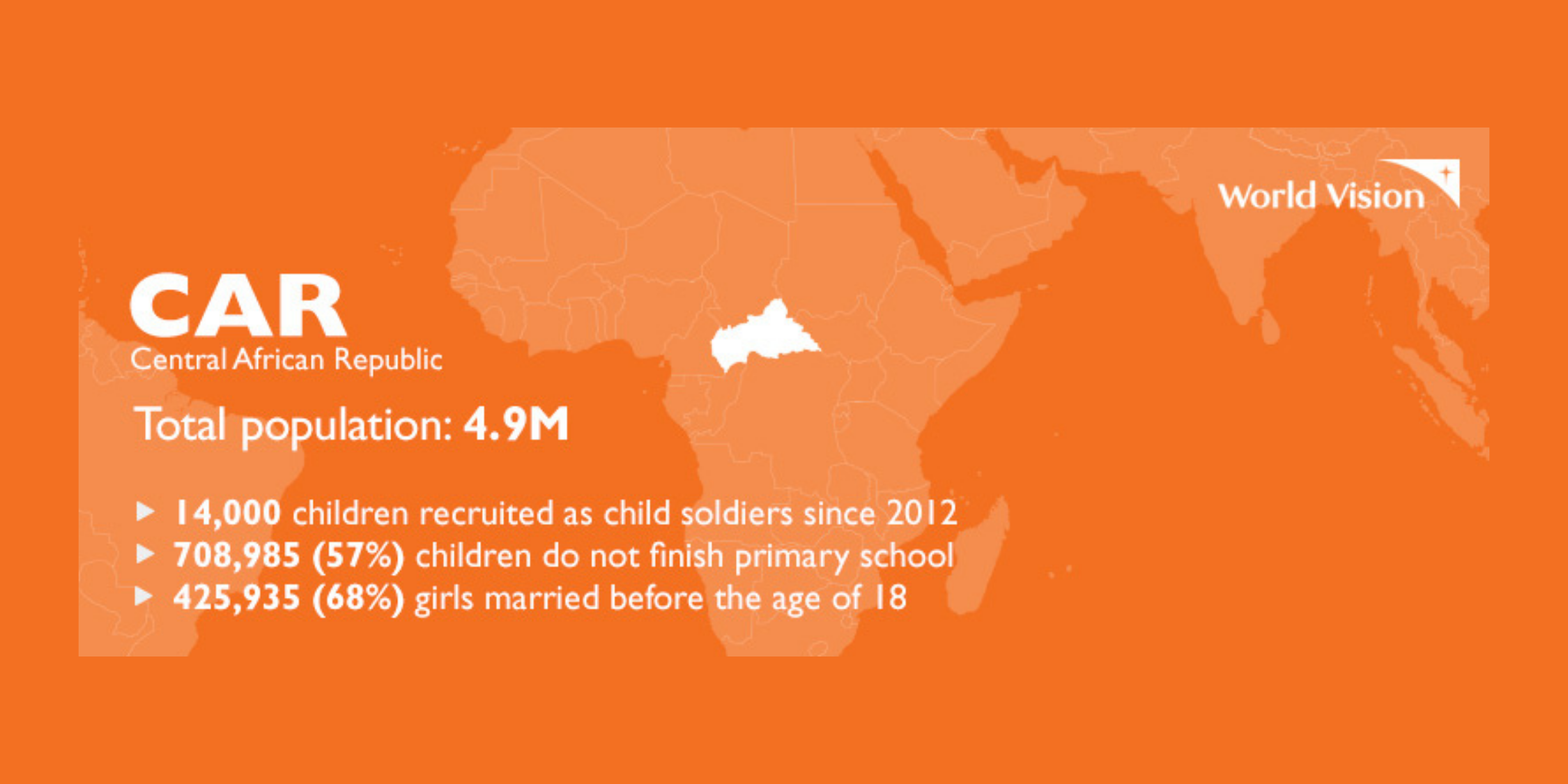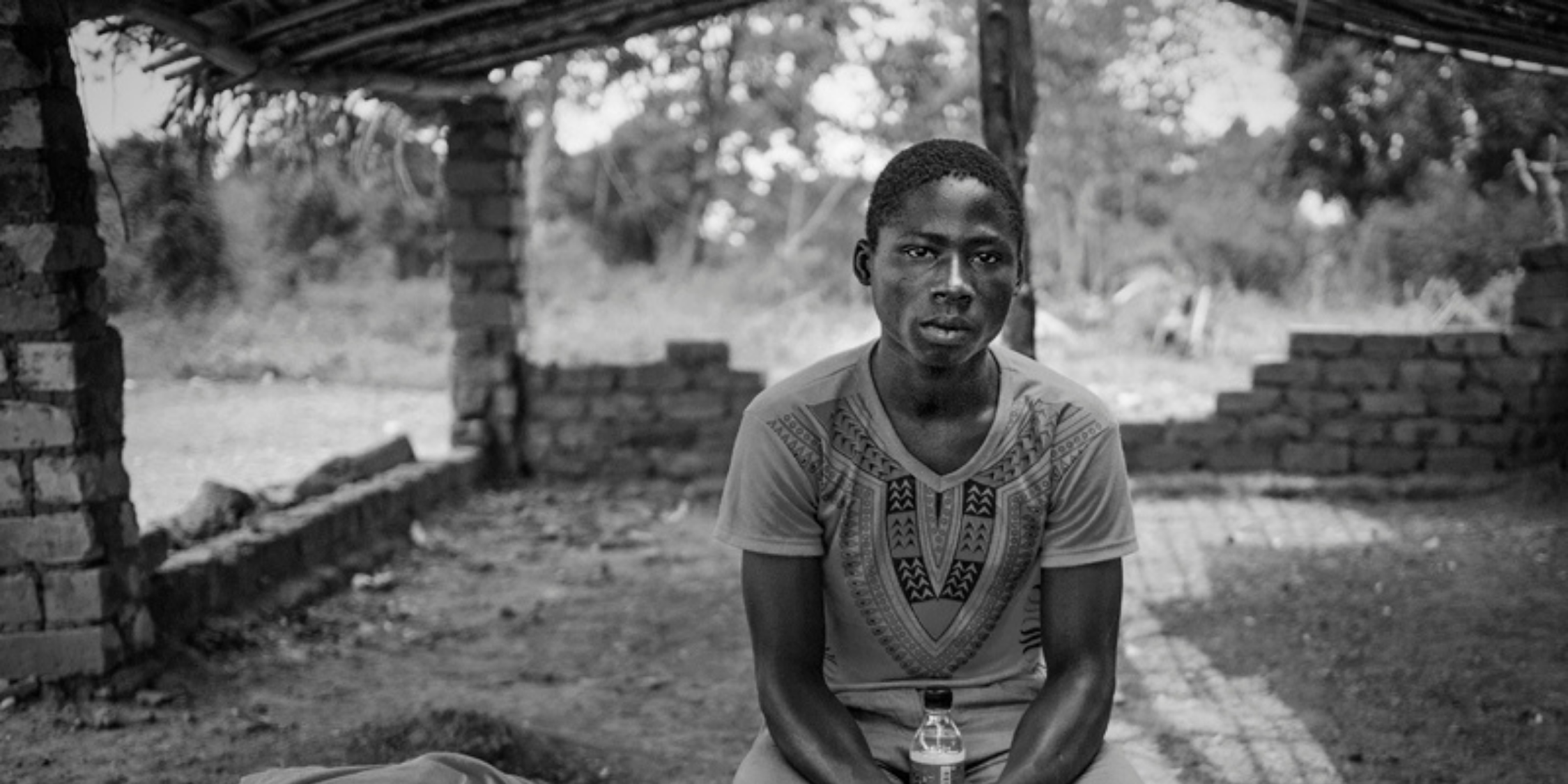“I didn’t want to do it.”
Lionel became a soldier at age 11. He did it to stay alive.
The soldiers who gunned down his terrified community members had also targeted Lionel’s mom and dad. They tortured them, then killed them.
Lionel managed to run for the bush. War raged all around him. Though thousands of children across the Central African Republic had felt similar panic, growing up amidst violent conflict, it made no difference. Cowering in the trees, Lionel was alone in the world.
He stepped out of the bushes and volunteered himself as a child soldier. “I didn’t want to do it,” he remembers, “but the opposition had killed my family, and I had to join to protect myself.”
Peace Clubs Help Rehabilitate Child Soldiers in CAR
Lionel joined the Anti-Balaka militia group in Central African Republic to avenge his family, after they were killed by an opposing militia group.
A peace club is now providing a safe rehabilitation space for Lionel and other former child soldiers.
Terror recruitment
It’s an effective recruitment strategy. Offer a terrified child the protection he needs to survive. Become that child’s lifeline, family, and sole method of survival. Then, he is yours for the commanding.
Lionel was too small to effectively manage a weapon, so the leaders put him in charge of ammunition. He was close at hand during battle. He saw and heard things no child should even imagine.
Eventually, Lionel was released from service. The fighting had eased, and to the militia he was disposable. But his mind was dominated by unthinkable images, and horrible, heart wrenching sounds.
How can a boy filled with nightmares resume childhood? Where and with whom? Who wants a broken, orphaned kid with no way to support himself?

Turning for home
Instinctively, Lionel began walking for home. It turned out to be a good decision. What happened next sounds like the stuff of TV commercials. But for this boy – and for hundreds of other child soldiers nearby – it was real.
World Vision was working in Lionel’s community, helping restore children who had served with military groups – some as soldiers, others as labourers or forced brides. The staff offered kindness. Understanding. Reconciliation. And the hope of healing.
But how do you help children like Lionel build peace with soldiers from ‘the other side’? With children whose leaders had raped, tortured, even killed their loved ones?

The practice of peace
Lionel was invited to join a Peace Club, where he learned the importance of tolerance, human rights and, most importantly, forgiveness. Staff teams had to be patient and persistent. For many of these children, forgiving their enemies took a year or more. But through talks, music, dance and play, the children grew more at ease with one another.
They realized they weren’t really opponents. They were all victims of war. And they all wanted a peaceful future. World Vision equipped and emboldened the children to be advocates for peace, laying the groundwork for a different tomorrow.
Today, at 17, Lionel is learning carpentry. It’s a more productive and hopeful vocation than the last one. And Lionel, an enterprising type, has the vision to become a businessman. It’s all possible with peace.
“I finally feel safe and okay,” he says. “Peace is very important. When there is no peace, everything breaks down.”
